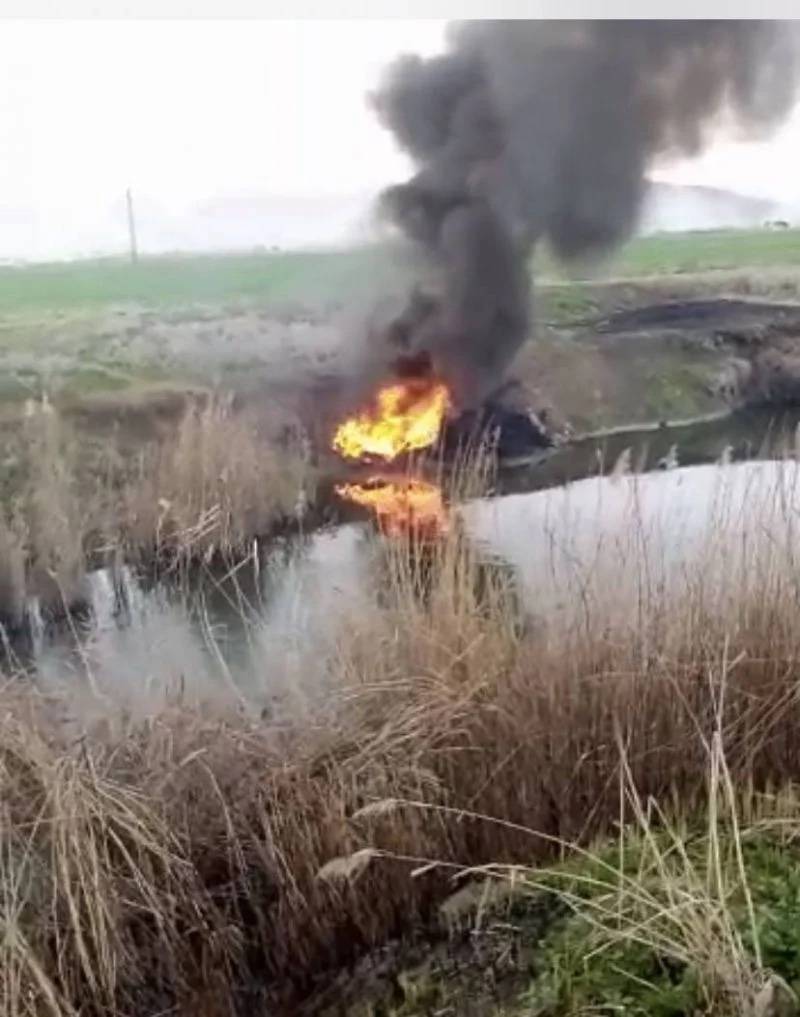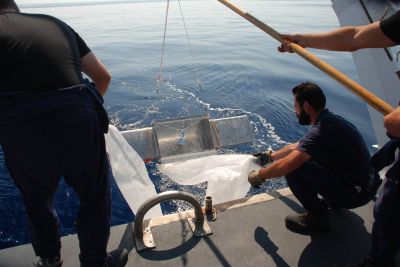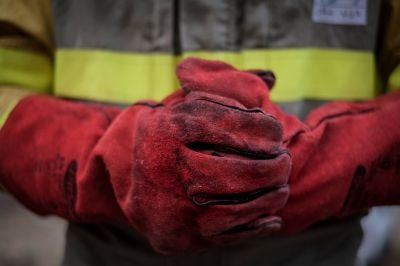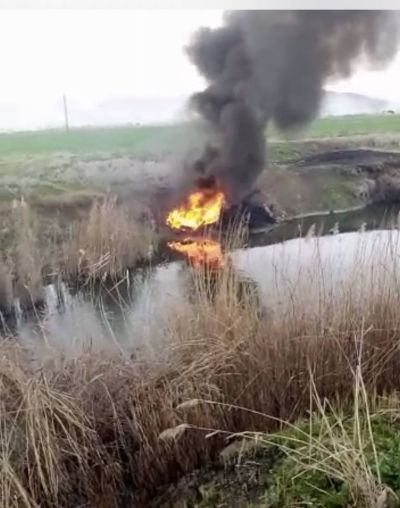
Burning tires on the banks of the river, the origin of a complaint by the Litani River Authority against polluters. (Screen capture from a video provided by the Litani River Authority)
A.K. and his co-workers thought they were immune from punishment in a country where polluters are rarely prosecuted. They had become accustomed to burning used tires on the banks of the Litani River in the Bekaa, near the Hawsh al-Harimeh village, in order to extract the copper from the rubber and sell it.
Videos sent to the Litani River Authority, which it shared with the press, show this uncontrolled incineration leading to the release of thick black smoke. The resulting highly toxic waste was then thrown into the river. The whole process caused pollution to the air, soil and water.
This action might have gone unnoticed if the Litani Authority had not lodged a complaint before the public prosecutor’s office in November 2022, after learning about the environmental crime.
Following this complaint and a subsequent investigation, A.K. was arrested. On June 19, the Bekaa’s first investigating judge, Amani Salameh, made an unusual ruling, which L’Orient-Le Jour has seen: the detainee “will be released on LL30 million bail” and will have to “carry out a six hours river cleanup where the tires were set on fire, under the Litani River Authority’s supervision.”
The authority's director Sami Alawieh told L’Orient-Le Jour on Wednesday that the man in question will be contacted right after the Eid al-Adha holiday to implement the court order, under the supervision of a team sent by the authority itself.
“We will ask him not only to clean up the river where he polluted it, but also to plant trees that we acquired thanks to fines paid by other polluters,” Alawieh said.
Alawieh pointed out that replacing prison sentences and fines with community service, which is common in other countries, was enshrined in Lebanon by Law No. 138 of 2012.
“The Litani River Authority contacted the [caretaker] justice minister to inform him of our interest in seeing this type of decision applied to the river’s polluters’ cases,” he said.
A dissuasive effect without penalties?
Alawieh added he is confident about the impact of such rulings, which extract community service rather than simply impose a penalty or punishment.
“Today, we are suffering from environmental degradation and a lack of environmental awareness,” he said. “ I think such rulings would kill two birds with one stone: they repair the damage done and change the behavior of polluters.”
But can such rulings alone change behaviors and customary practices? Alawieh is unconvinced: “Community service is certainly no substitute for penalties. Such cases need to be accompanied by stricter application of the law.”
Josiane Yazbeck, an expert in environmental law, is a little more skeptical. Describing the judge’s decision as “bold,” as judgements for environmental crimes are still rare in the country,, she questioned the wisdom of replacing penalties with community service in a country where penalties have never been applied in the first place.
“I understand to raise awareness among polluters of the seriousness of their actions, but this must be accompanied by some kind of sanction, even if it’s just a fine, so that the measures serve as a real deterrent,” she said.
Yazbeck also indicated that the rehabilitation of degraded sites is not a new requirement, since it “is clearly mentioned in Article 51 and 52 of Law No. 444 of 2002 on the protection of the environment, not to mention the penalties provided for in the Water Law [of Lebanon] and the Code of Criminal Procedures.”
She said, however, that “a court decision condemning a crime against the environment is too rare not to be noted.”
For his part, Alawieh said he hopes “that decision-makers will one day be subject to similar rulings forcing them to repair the pollution they have helped to generate by granting permits to polluting industries, for example.”
This article was originally published in French in L'Orient-Le Jour. Translation by Joelle El Khoury.


